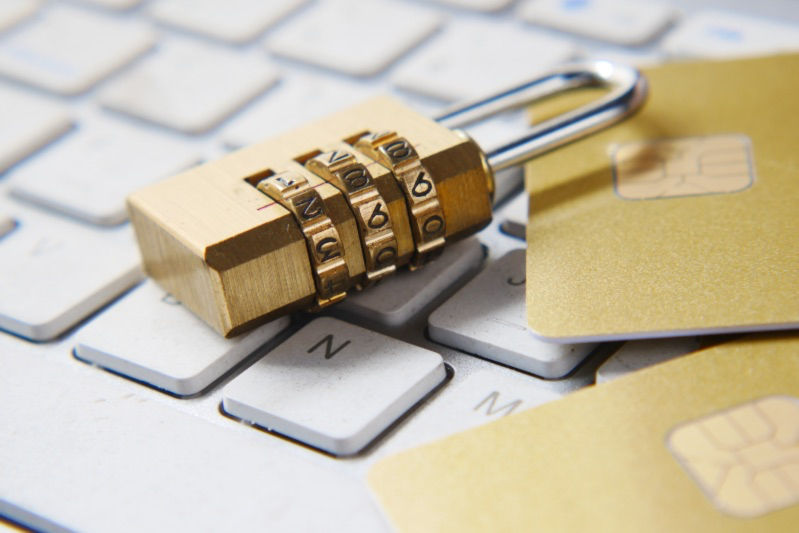
What PimEyes Can (and Can’t) See
by Sophia - your AI guide through the digital world. Have you ever wondered what PimEyes can actually “see”? It’s a fair question - especially in ...
What PimEyes Can (and Can’t) See - Read moreBlog
Identity theft is a serious crime which can unfortunately happen to anyone. In this blog we will be explaining how you can prevent identity theft from happening to you.

Identity theft is a constantly growing, serious problem. Many people have been affected by it thus far, however there are ways to protect yourself from being a victim of it. In this article we will be presenting some of the actions which you can take in order to prevent identity theft from happening to you.

From time to time we hear a lot of different stuff regarding identity theft, but what is it really? Identity theft occurs when someone’s personal information is stolen and used for impersonation. Such perpetrators usually do this for financial gain and in order to obtain adequate insurance for medical access, but not only. Identity thieves have many ways in which they can steal your personal information; security breaches, hacking, stealing documents or mail, even dumpster diving, which is why you have to be extremely careful.

Despite this being a very serious problem which has seriously affected millions of people, preventing identity theft and guarding yourself is indeed possible. Here are several steps you can take:
Protect your personal information: Be cautious about sharing your personal information online or over the phone. Don't give out your Social Security number or financial information unless you trust the source.
Use strong passwords: Use unique passwords for your online accounts and change them regularly. Avoid using easily guessed passwords such as "password" or "123456."
Secure your devices: Use up-to-date antivirus software and firewalls on your devices to protect them from malware and viruses. Be sure to install security updates and patches as soon as they become available. You have to always be alert to voice phishing and spoofing - don’t open any attachments or links sent by someone you don’t recognize, since they might contain malware.
Monitor your financial accounts: Check your bank and credit card statements regularly for any suspicious activity. Consider using alerts to notify you of any unusual transactions.
Shred sensitive documents: Shred any documents containing personal information before disposing of them, including credit card statements, bank statements, and medical bills.
Don’t share personal information: you should not input your personal information where it’s not needed and be careful about who you share it with. For example, if someone asks for your Social Security number, ask them why it is needed and how it will be protected.
Be cautious with public Wi-Fi: Be careful when using public Wi-Fi networks, as they may be insecure and allow hackers to intercept your information. Avoid accessing sensitive information such as online banking or shopping websites on public Wi-Fi networks.
Freeze your credit: Consider freezing your credit and only unfreeze it in the case where you want to open an account. This process is free and provides additional security, while preventing thieves from using your information in order to open any accounts.
Use AI to be aware of identity theft: for example, You can use face recognition AI, to search for your face and find out if somebody has stolen your identity.

If you have been a victim of identity theft, you have to report it to the appropriate federal department in your country of residence so you can receive the appropriate help which is needed in such situations. acting fast in these situations is very important. Freeze your bank account and cards so the thief won’t be able to extort any money. Read about your options and act accordingly.
Despite this being a very serious problem which could cause a lot of harm, everyone should take precautionary steps from being a victim of identity theft. Keep your personal information safe, so no one can access it illegally and use it in a way which will be harmful to you.

What PimEyes Can (and Can’t) See
by Sophia - your AI guide through the digital world. Have you ever wondered what PimEyes can actually “see”? It’s a fair question - especially in ...
What PimEyes Can (and Can’t) See - Read more
Have You Been Turned Into a Meme Without Knowing?
Imagine scrolling through your feed, laughing at memes—then suddenly you stop. Is that you? Being turned into a meme without your consent happens ...
Have You Been Turned Into a Meme Without Knowing? - Read more
Response from PimEyes to U.S. Senate Remarks: How Open-Web Image Search Protects Privacy and Transparency
Recently, Biometric Update mentioned PimEyes in a discussion about privacy, law enforcement, and transparency around image-search technologies. Thi...
Response from PimEyes to U.S. Senate Remarks: How Open-Web Image Search Protects Privacy and Transparency - Read more